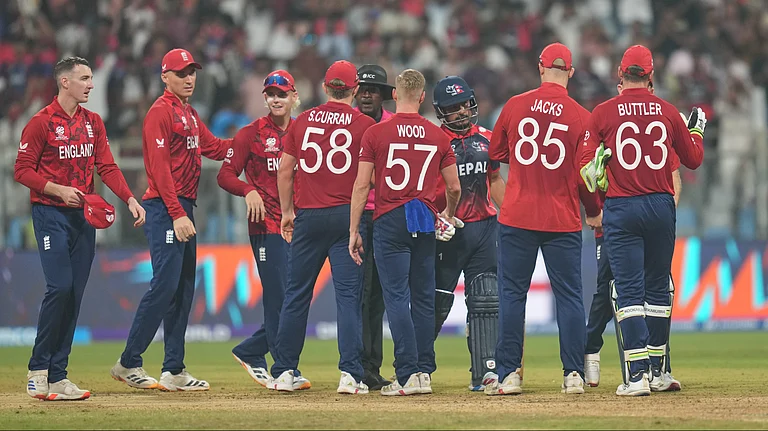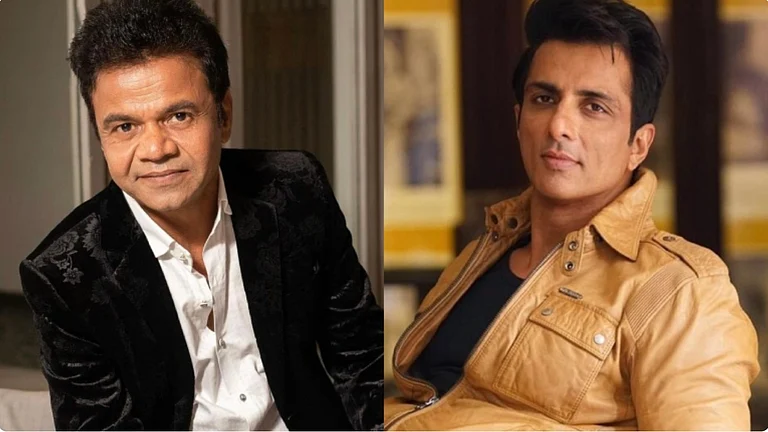Gulping down a protein shake from a bottle, Amit Zutshi, 5ft 11 inches, took one last approving look at his six-pack-in-the-making before putting on his jersey and rushing out to his car, on his way to meet his parents. At home, after a meal of broiled chicken, pulses and salad, Zutshi fainted. He was rushed to hospital, where after four days, doctors declared him dead. The cause? “The cocktail of supplements he was taking,” says his father Jeevan Zutshi. “The doctors told us that the supplements—whey protein (a mixture of proteins extracted from milk) along with colleen cleansers—caused a fall in his sodium levels, which led to improper functioning of the organs.”
The global dietary supplements market is valued at $131 billion, according to a Future Market Insights report. India accounts for $2 billion (about Rs 13,400 crore) in dietary supplement sales, a market that is growing at 16 per cent, says an Assocham study. But almost 70 per cent of dietary supplements being sold across the counter are fake, counterfeit, unregistered and unapproved, the study noted. “With no industry standard requirements and guidelines, most domestic manufacturing is not consistent and is often lacking in quality,” says Chetan Agarwal, Director of InLife, a leading Indian dietary supplements brand. “With international supplements, often the import duties are so high that people resort to adulteration to bring down costs,”
Most industry insiders believe that counterfeit products give the industry a bad name, but professionals point out that dietary supplements, whether fake or not, can have no proven beneficial effect on the body. They may, contrary to popular perception, actually have negative effects. Studies by the Harvard T.H. Chan School of Public Health and the American Heart Association show, for INStance, that dietary supplements have no scientifically proven health benefits. A study by the Journal of American Medical Association also showed that people continued to consume dietary supplements despite the fact that a majority of them have no health benefits.
Despite the large and growing consumer base of these products, few users have been known to actually see positive results. Deepika Khaitan, a 35-year-old mother, takes dietary supplements on a regular basis along with her three kids. While the kids are given the supplements under a doctor’s recommendation, she takes them on her own. “As we are vegetarians, our food does not meet our nutritional requirements. And after 30, women need additional supplements,” says Khaitan. But she concedes she doesn’t really know if the Rs 8,000-a-month worth of supplements she takes—calcium, multivitamin, vitamin E, vitamin B Complex for her hair, and primrose oil—do her any good.
A 2015 study by the University of Colorado notes that individuals taking health supplements are more likely to suffer from health problems and genetic diseases such as cancer. “Almost all dietary supplements have long term side-effects on the body,” says Doctor Alam Giri, an experienced general physician currently working at the Hamdard Institute of Medical Sciences and Research, New Delhi. Some of these complications relate to overall electrolyte imbalance, deterioration of kidney function due to long-duration protein supplement consumption and calcification (blockage in arteries due to prolonged intake of calcium).
According to another Assocham survey, in 2012, about 78 per cent of urban adolescents in India consumed some form of dietary supplements to enhance their appearance and increase energy levels. One such youngster, Rahul Singh, 25, had to be rushed to the doctor with abdominal pain. “I had been taking whey protein for a while, and the doctor told me I was developing kidney stones because of it,” he says. Singh was having a high-end, international brand protein supplement in the recommended dosage, which set him back by Rs 6,000 every month.

After Amit Zutshi fainted, he was rushed to the hospital where after four days, he was declared dead. The cause: the cocktail of supplements he was taking.
Calcium supplement, which many women take to boost bone health, increases the risk of heart disease. A study published in the Journal of the American Heart Association noted that calcium supplements make people prone to plaque build-up in the arteries. In India, the Assocham study reveals, vitamins and minerals account for 40 per cent of the dietary supplements market, herbal supplements about 30 per cent, followed by probiotics, omega-3 fatty acids and proteins.
“People are trying to compensate for their unhealthy lifestyles with dietary supplements, but these aren’t helpful. In fact, we rarely recommend them, unless the patient is unable to consume solid food,” says Lashika Bajaj, clinical nutritionist at Fortis Hospital, New Delhi. Dr Giri feels that dietary supplements should not be sold over the counter. “These are medicines, which vary from person to person, and must be had only under supervision,” he says. Yet, the industry is loath to any kind of oversight. Dietary supplements are often recommended by skin treatment centres and gym instructors. “The skin treatment centre I went to, recommended a combination of primrose oil and vitamin B complex for my dry, dull skin,” says Anshika Goyal. Her skin reacted to the combination, resulting in acne. Gym owners and trainers, like Anubhav Jain of Fitreaks, recommend whey protein to everyone who is doing weight training. “The typical Indian diet does not provide for nutrients. Supplements are required,” he says. Sagar Pednekar, technical training manager at Gold’s Gym, says he recommends whey proteins only after a consultation with the dietician, and only in cases of weight training where the customer wants quick results.
“Easy availability of information and the yearning for quick results have triggered a trend of self-medication,” says Devik Garg, a senior consultant at Herbalife, a global nutrition company. Half-baked learning through word-of-mouth or from the Internet is extremely hazardous. Sangeeta Chattopadhyay from Kolkata says her sister-in-law was told to have a high dose of vitamin D and calcium without undergoing any tests, which triggered a bout of epileptic fits. Often, people pick up supplements on the strength of their “brand appeal”. Bollywood actor Farhan Akhtar, for INStance, in an ad for Nutrilite says he traded his meals for a pill, and still outruns a healthy dog. “Good marketing sells and it is what these brands cash in on. Anytime anyone promotes anything but a natural, healthy diet, it must be questioned,” says Bajaj.
Nayantara Parikh, a photographer was big on gummy-bear vitamins that are endorsed by many international celebrities on social media platforms. She stopped taking “the chemicals” when she was diagnosed with Lyme disease (a skin condition). “I realised the junk I was putting in my body in the name of supplements, and have never gone back to them,” she says. “People often get attracted by the price, in the belief that a premium price means a good product that will give positive results, but the fact is that no supplement is good as it only has extracts,” says Dr Giri. Bajaj talks about a popular supplement company which has special training sessions for its employees to handle customers who come back after a month or two complaining of lack of results.
And these tactics are working. The Indian market is likely to double to $4 billion by 2020. Giri and Bajaj attribute the rise to the increasing need to be fit and fast, and the rising levels of disposable incomes. It may well be true, as an Amway spokesperson says, citing a World Health Organisation report that three out of every four adults do not take in the prescribed 400 grams of fruits and vegetables per day—which is why people turn to dietary supplements. But as the critics note, it is far wiser to push for a better natural diet, and promote a slow but sure way to getting fit. Until then, however, the hope is that the latest prod to the nutraceutical industry by the Food Safety and Standards Authority of India (FSSAI)—to comply with functional food regulation within the next year—will lead to standardisation of and quality checks on dietary supplements.


























